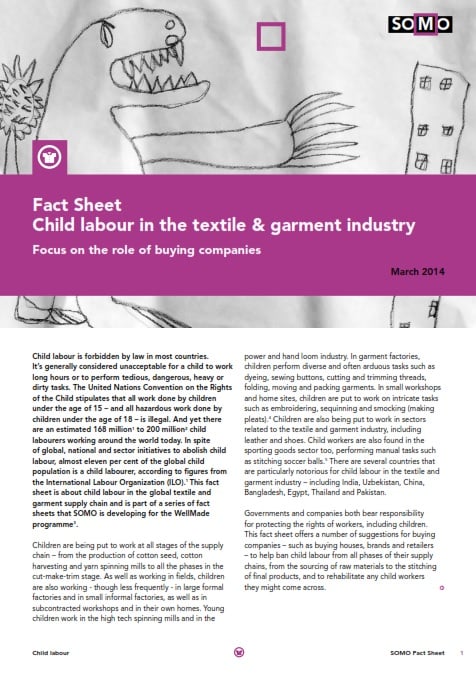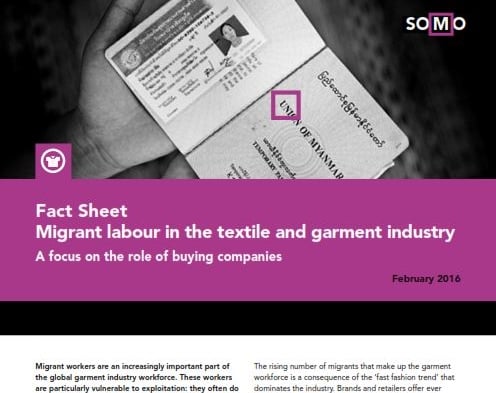
Migrant labour in the textile and garment industry
SOMO’s new fact sheet focuses on migrant labour in the textile and garment industry. It offers buying companies a set of recommendations to minimise the risk of exploiting migrant workers in their supply chain and to ensure that production is taking place under decent working conditions. The fact sheet is the sixth in a series about labour conditions in the textiles and garments industry and is made for the WellMade project.
Fact Sheet: Migrant labour in the textile and garment industry
Important workforce
Syrian refugees in Turkey
Pressure on prices and delivery
Know your supply chain
WellMade(opens in new window) project
On 20 January, at the Ethical Fashion Show Berlin, WellMade presented its latest publication Improving working conditions in your clothing supply chain(opens in new window) .
Do you need more information?
-

Gisela ten Kate
Coordinator MVO Platform
Related content
-
 Pauline OvereemPosted in category:Publication
Pauline OvereemPosted in category:Publication Pauline Overeem
Pauline Overeem
-
Fact Sheet: Unsafe Garment Factory Buildings Published on:
 Pauline OvereemPosted in category:Publication
Pauline OvereemPosted in category:Publication Pauline Overeem
Pauline Overeem
-
Fact Sheet: Forced labour Published on:
 Pauline OvereemPosted in category:Publication
Pauline OvereemPosted in category:Publication Pauline Overeem
Pauline Overeem
-
 Martje TheuwsPosted in category:Publication
Martje TheuwsPosted in category:Publication Martje Theuws
Martje Theuws
-
Bonded (child) labour in the Indian garment industry Published on:
 Pauline OvereemPosted in category:Publication
Pauline OvereemPosted in category:Publication Pauline Overeem
Pauline Overeem
-
 Flawed Fabric – The abuse of girls and women workers in the South Indian textile industryPosted in category:NewsPublished on:
Flawed Fabric – The abuse of girls and women workers in the South Indian textile industryPosted in category:NewsPublished on: -
 Migrant workers and temporary workers suffer from lack of rights in electronics sectorPosted in category:NewsPublished on:
Migrant workers and temporary workers suffer from lack of rights in electronics sectorPosted in category:NewsPublished on: -
 Martje TheuwsPosted in category:Publication
Martje TheuwsPosted in category:Publication Martje Theuws
Martje Theuws
-
 Migrant workers in Malaysian electronics industry face atrocious working conditionsPosted in category:NewsPublished on:
Migrant workers in Malaysian electronics industry face atrocious working conditionsPosted in category:NewsPublished on: -


